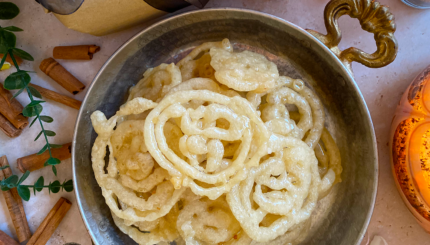We have just entered the month of Elul. As we prepare for the High Holidays, this is a time for reflection and repentance.
This month we recite selichot, or penitential prayers, and ask Hashem for forgiveness. We repeat God’s words to Moses on Mount Sinai after the golden calf incident, reminding God of His ability to forgive us- “Lord, Lord, benevolent God, Who is compassionate and gracious, slow to anger and abundant in lovingkindness and truth, preserving lovingkindness for thousands, forgiving iniquity, rebellion and sin, and He pardons” (Exodus 34:6). In the Sephardic tradition, selichot are said from Elul to Yom Kippur. The Ashkenazi do the first selichot the Saturday night before Rosh Hashanah. After that, they are said before Shacharit (morning prayers), and the Shofar is blown after Shacharit as a wake-up call.
The image of the shofar as an alarm clock, warning me before Hashem evaluates my deeds and determines my fate, has always terrified me. The harsh liturgy on the High Holidays can be difficult to resonate with, and I struggle to genuinely reflect. Each year I attempt to practice Cheshbon HaNefesh (“an account of the soul”)- introspection on what we did well or poorly that year, but it is always easier said than done. The simple sins of youth were much more straightforward. “The time I lied to my brother.” “When I teased a classmate.” But as I got older, sins became harder to quantify as my world became ambiguous and actions are no longer simply “good” or “bad–”was I doing self-care by cancelling plans or was I being a bad friend? Did I commit lashon hara (gossip) when I vented to a peer?
Identifying sins of adulthood is a much more difficult task, one that requires deeper introspection and a willingness to be truly honest with ourselves.
My “wake up call” was when I missed the deadline for my absentee ballot. That was an easy way for me to make an impact in my community, and I did not make it a priority. Upon further reflection, I realized that my biggest sin this year was slacktivism. How many times did I put “interested” on a Facebook event for a cause with almost no intention on going? And when I did attend a protest, was it for the picture on social media, or was I truly dedicated to the cause? What did I do to take action after I tweeted?
My favorite time for introspection is Tashlich. Standing on my own by running water, without foreboding liturgy or a grumbling stomach to distract me, I am able to deeply examine myself and the past year. That is why I wrote a social-justice themed Tashlich for Keshet’s High Holiday Resource for Trans Rights, inspired by my experiences:
Let us cast away the sin of indifference to injustice
Let us cast away the sins of times we did not reach out to help others
Let us cast away sins of being not being better allies because of our own privileges
Let us cast away the sins of times we did not help our transgender siblings and community
members
Let us cast away the sins of the times we did not have the courage to speak up about injustice
Let us cast away the sins of times that we did not help others because we were happy with our
own lives
Let us cast away the times we witnessed prejudice or discrimination but did nothing
Let us cast away the sin of ignoring those in need
Let us cast away the sins of not having time to be part of activism in our communities
Let us cast away the sins of not giving tzedakah to causes
Let us cast away the sin complacency in oppression
I need to prioritize social justice issues, organize, and commit. It is so easy to scroll through one’s Twitter feed and see all the terrible things happening in the world and feel overwhelmed and helpless, but there are tangible ways that we can make a difference.
One issue that I am prioritizing is transgender equality. If you care about the LGBTQ community, now is the time to make a difference. In 2016, Massachusetts passed important protections for transgender folks in public places, and it is up to us to ensure that they are upheld in November. This summer I have had the opportunity to speak to Jewish community members about getting involved in the campaign. It is all too common for someone to tell me that they care about transgender rights, but just as I usually do, they provide a list of reasons as to why they cannot get involved in the cause. We can always make excuses, but we need to act. As the often-quoted Hillel once said, “If not now, when?”
If you’re registered to vote in Massachusetts, sign our Jewish Community Vote YES! on 3 Pledge to commit to vote to uphold public protections for transgender people in Massachusetts in November. If you’ll be away, don’t forget to register for an absentee ballot like I did! You can also volunteer and attend a phone bank or canvas.
And if you aren’t from Massachusetts, you can still help by sharing the pledge on social media and talking to all your Massachusetts friends and family. Raising awareness and having conversations is the most effective way of changing hearts and minds and the only way we’ll have enough votes.
Please join me in “waking up” to be a better activist, repent for my complacency, and make teshuvah towards being a stronger advocate for social justice.


